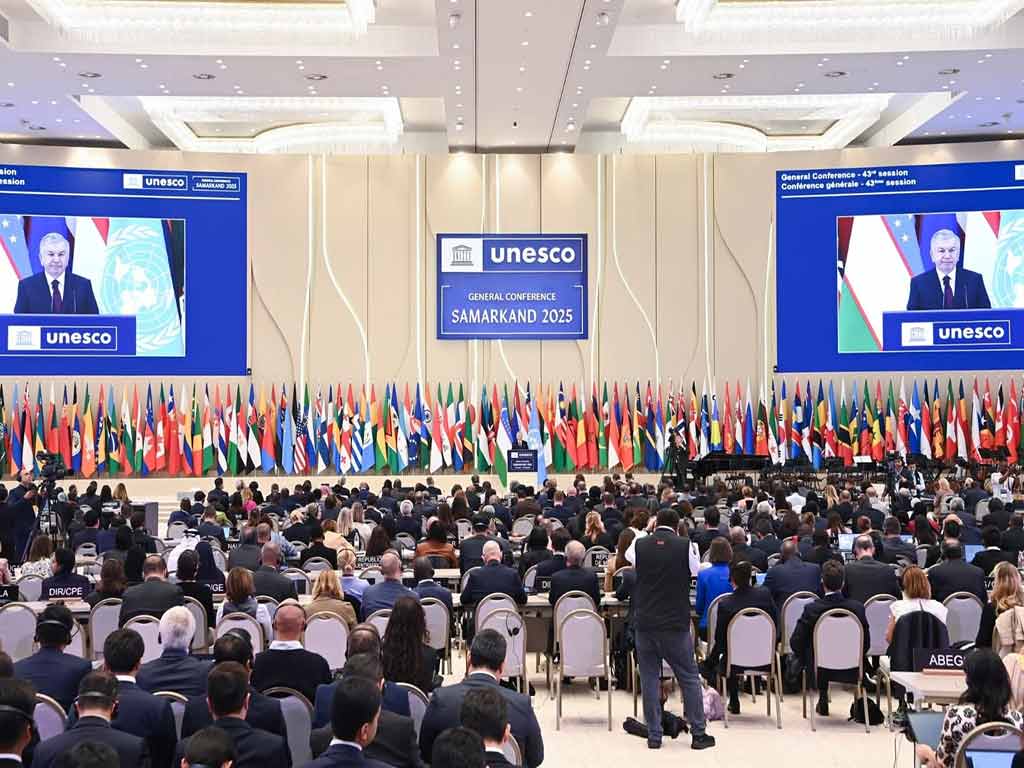Ernesto Rodríguez Tapia, First Deputy Minister of Communications, is leading the Cuban delegation participating in the 43rd UNESCO General Conference being held in the Uzbek city of Samarkand.
The historic city of the Central Asian nation, a crossroads of civilizations along the Silk Road, is hosting the major conference for the first time in four decades outside the organization’s Paris headquarters, at a time of great challenges for humanity.
Delegations from 181 countries will focus their discussions until November 13 on topics such as the defense of peace, multilateralism, solidarity, and international cooperation.
The agenda for the debates includes issues such as the future of education, the role of new technologies in the teaching and learning process, their impact on development, the importance of culture and heritage as vectors of identity and unity, and the need for scientific cooperation.
Other topics to be addressed include combating disinformation and hate speech, as well as the examination of a new legal instrument on neurotechnology, which is expected to be adopted by consensus.
During the opening day of the Conference, a change of leadership took place, with the Romanian Ambassador to UNESCO and outgoing President of the intergovernmental body, Simona-Mirela Miculescu, being recognized.
Meanwhile, her Bangladeshi counterpart at UNESCO, Jondker Mohammad Talha, assumed the position, with both reaffirming their commitment to multilateralism and UNESCO’s increasingly important mandate.
The opening session included remarks from the Director-General, who gave an overview of her tenure, and the President of Uzbekistan, Shavkat Mirziyoyev, who emphasized the symbolic value of holding the Conference outside of Paris and his country’s collaboration with UNESCO.
UNESCO Conference
In this context, he presented a series of national initiatives, including the creation of a platform integrating artificial intelligence for inclusive education and the proposal to hold an International Handicrafts Congress in Bukhara, a UNESCO Creative City, in 2027.
The Cuban delegation to the Samarkand meeting also includes the President of the Cuban National Commission for UNESCO, Dulce María Buergo, and Laura Álvarez, an official from the Permanent Delegation of Cuba to UNESCO.
Cuba is participating with the commitment to contribute to strengthening the Organization in a complex and challenging international environment.
The UNESCO General Conference is the Organization’s supreme decision-making body. It defines its main policies and lines of action, approves programs and budgets, among other decisions in the education, science, culture, and communication sectors.
[ SOURCE: PRENSA LATINA ]

